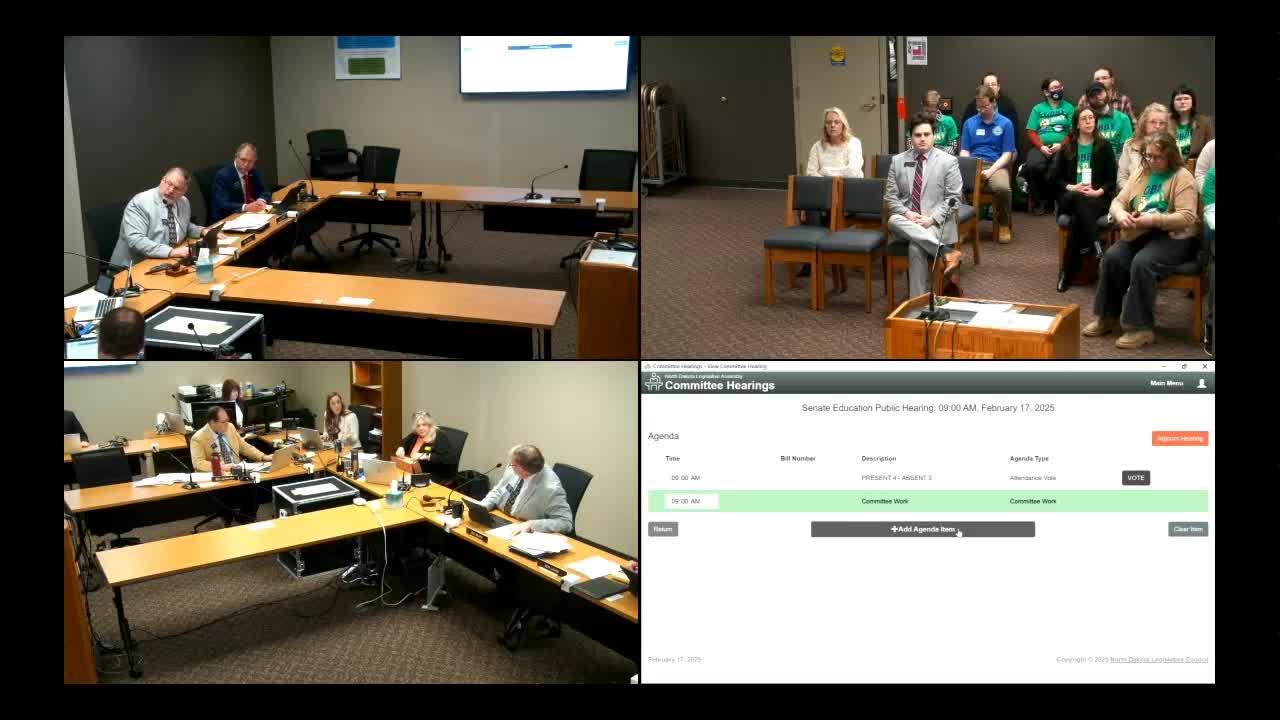Article not found
This article is no longer available. But don't worry—we've gathered other articles that discuss the same topic.
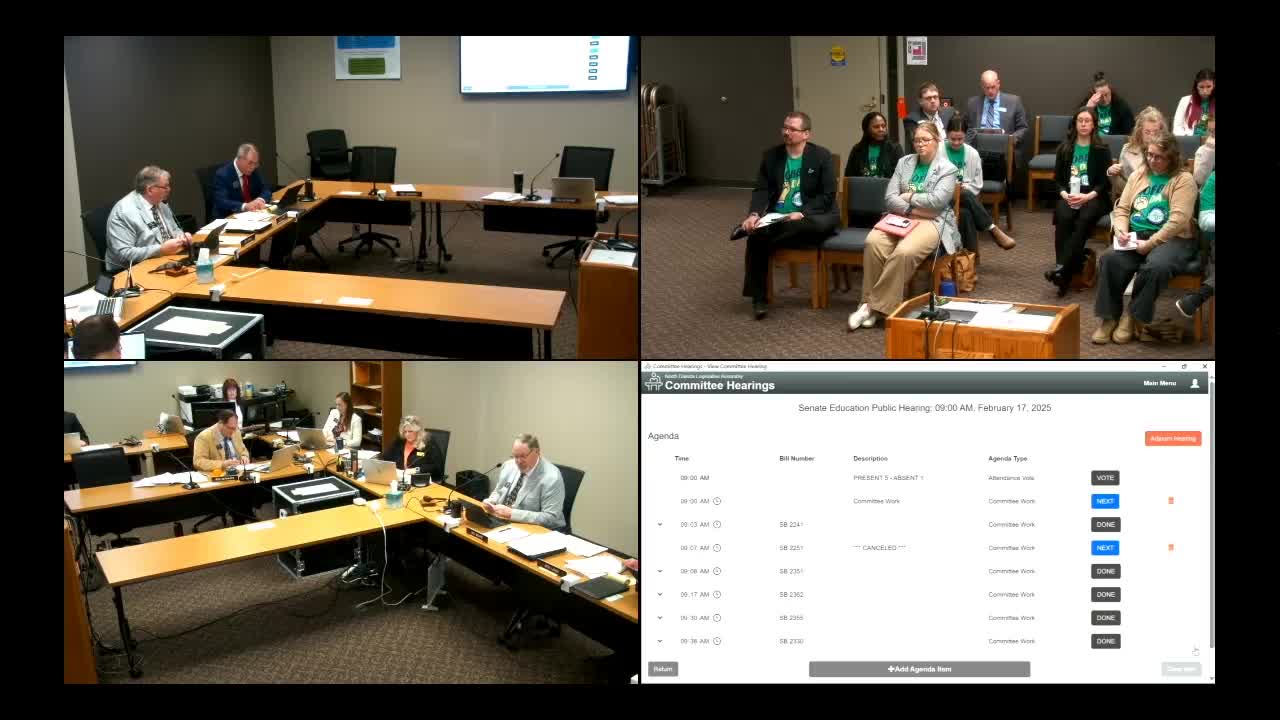
Committee advances survey bill after adding career‑tech exception and parental-consent debate
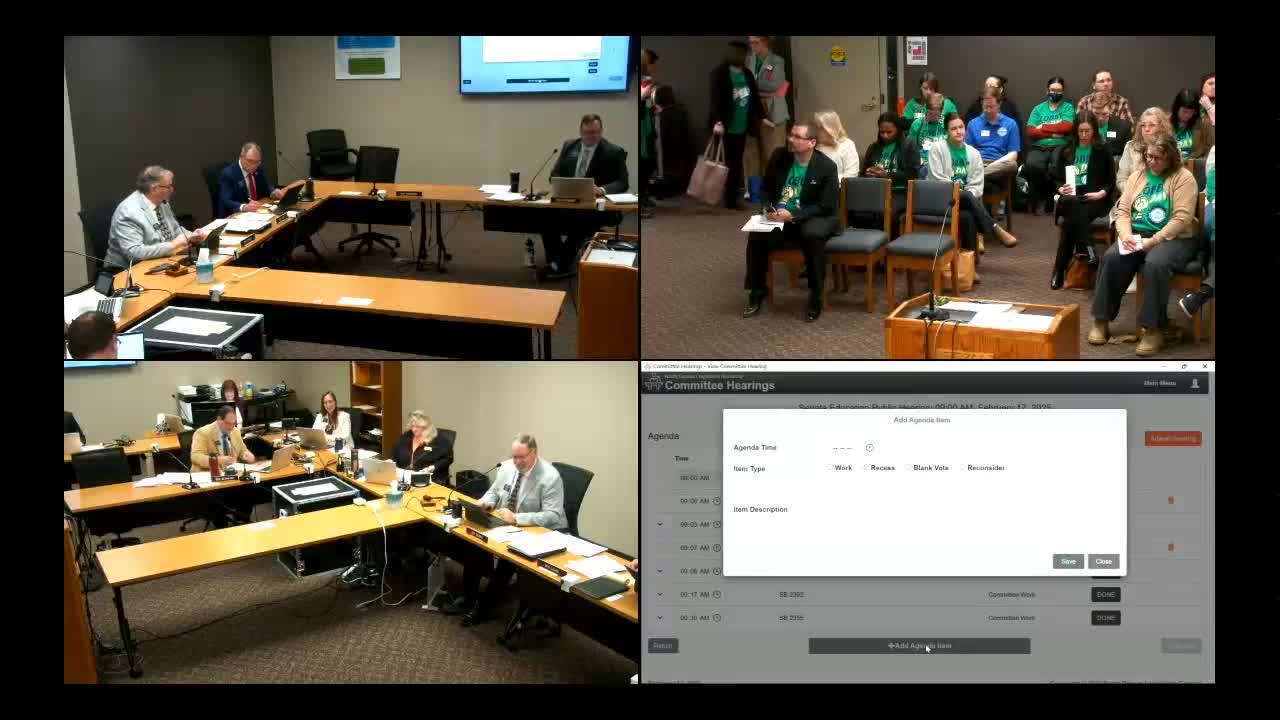
Committee scales back human-trafficking curriculum bill, narrows grades and removes faculty-hour mandate
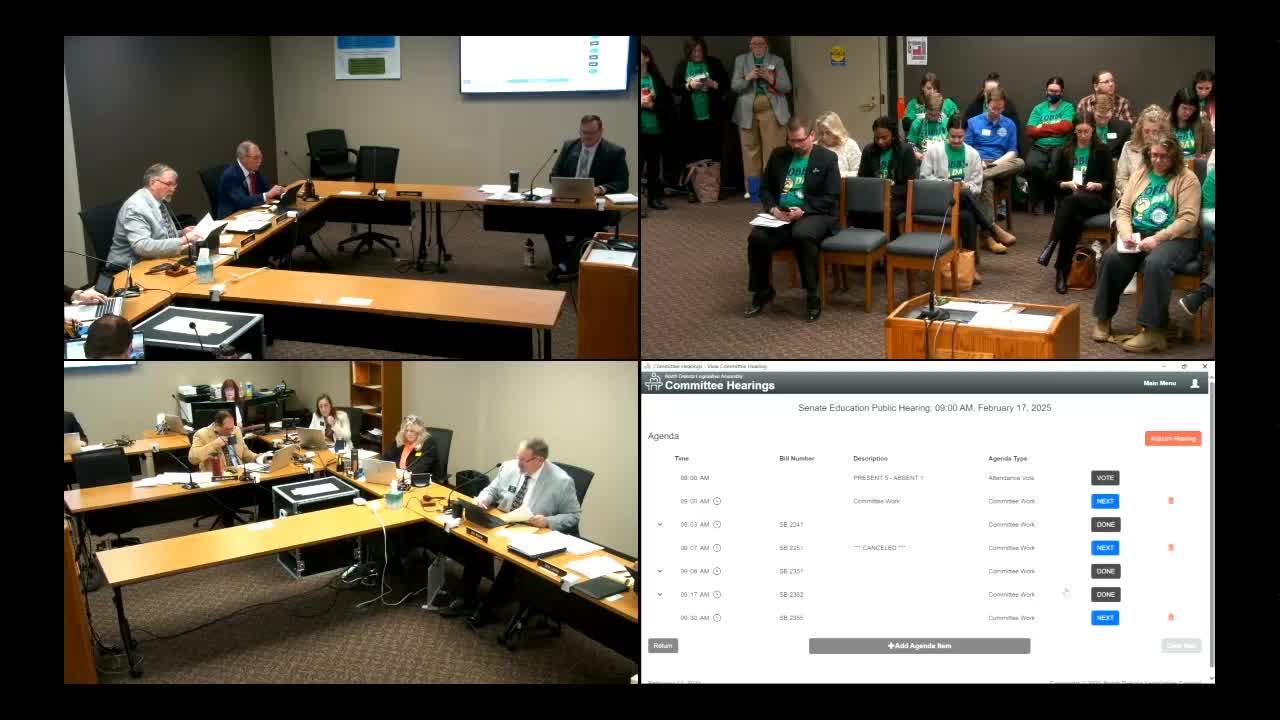
Committee votes "do not pass" on bill proposing intelligent-design instruction
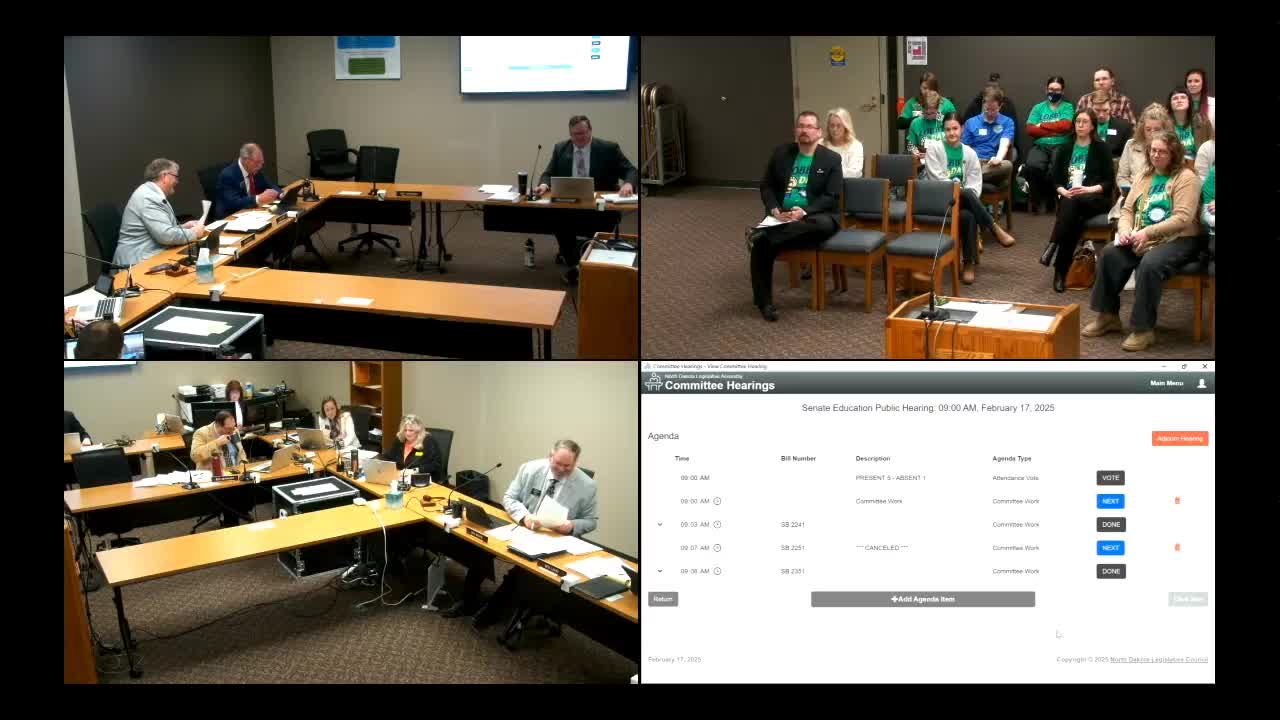
Committee approves bill to let state offer school accreditation options; removes named interest groups
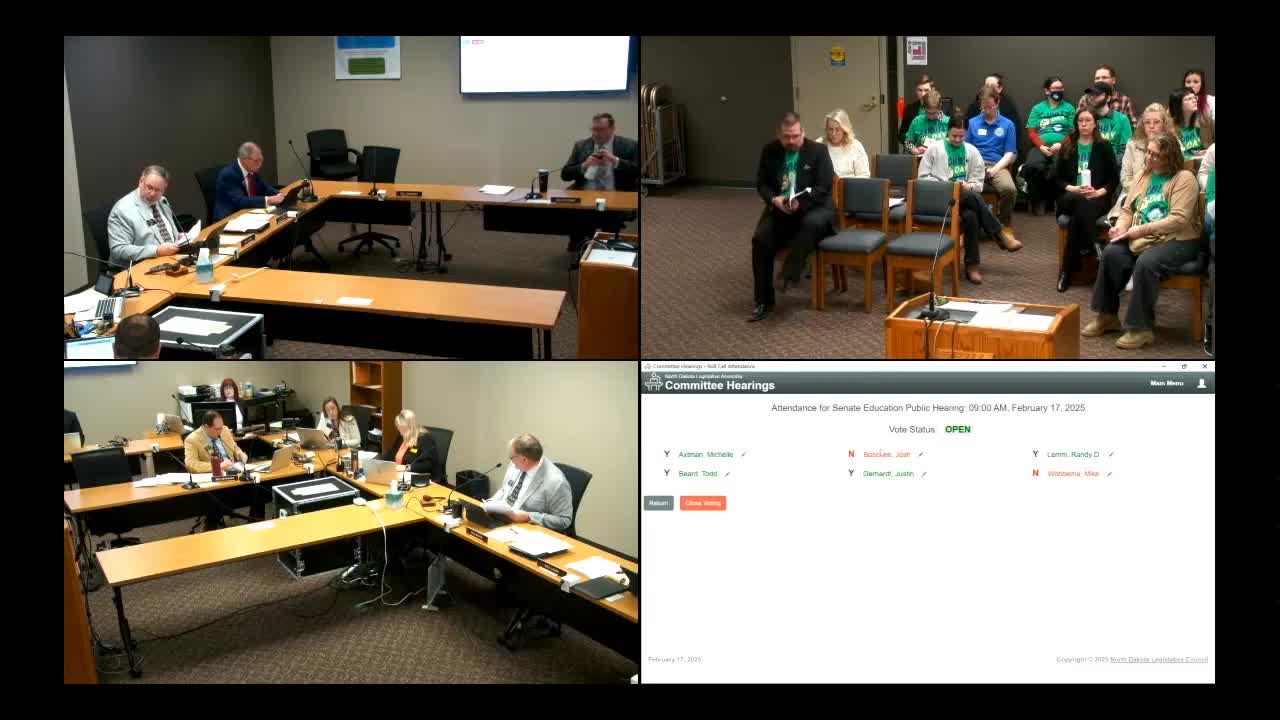
Committee narrows annexation notice rules, requires certified mail to affected owners
